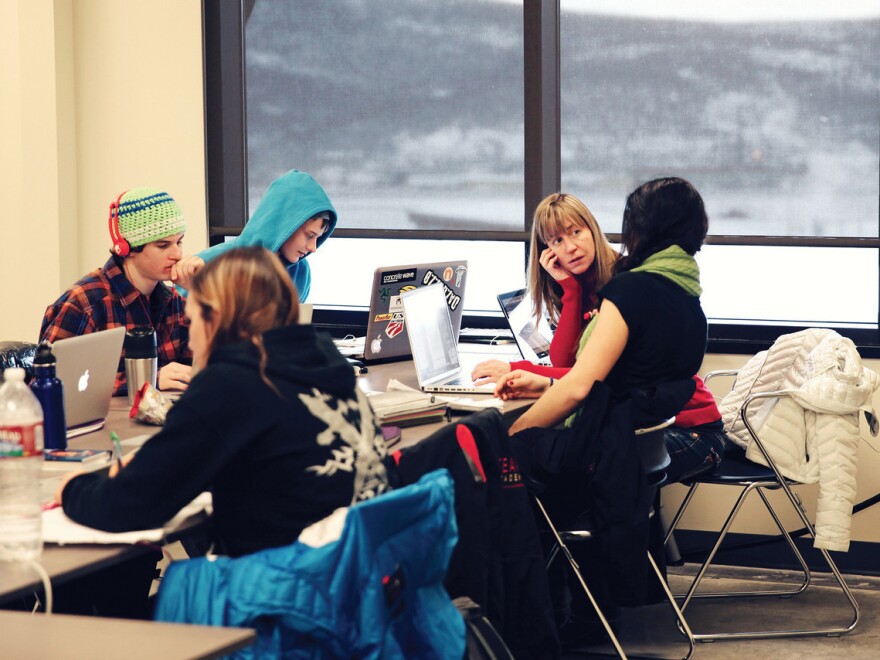Freestyle aerial skier Mac Bohonnon recently finished second at the Val St. Come World Cup in Quebec, and that helped him qualify for the Olympics in Sochi. But when he's not doing triple-twisting double backflips, he's taking Advanced Placement classes at Team Academy in Park City, Utah.
It's tough to be a normal high school senior and manage constant training and competition. But Mac doesn't go to a normal high school. He is one of 36 students at an invitation-only high school located on the third floor of U.S. Ski and Snowboard Association headquarters, just above the training facilities.
Olympic athletes often begin their sports as small children. They sacrifice holidays and family life for training and competitions; elite athletes can also sacrifice academics. The USSA — the sports' governing body — is trying to prevent that by opening its own high school.
Headmaster — and head cheerleader — Dan Kemp says some ski and snowboard athletes drop out of high school because it's just too hard to juggle it with sports. Team Academy, he says, allows athletes to live a more balanced life.
"That whole person is more than just how fast you can ski down the hill, how fast you can twist and turn your body in a half-pipe," Kemp says. "So we needed academic services."
There are other high school ski academies; this is the only one run by the governing body. Team Academy has some normal classes, but it's mostly self-paced with a lot of one-on-one and online sessions. It also takes the place of home-schooling, which is a common way athletes try to keep up. Alpine skier Storm Klomhaus, 15, used to be home-schooled in Boulder, Colo.

"Yep, all alone at home sitting at a countertop, with my parents trying to teach me Algebra 1," she recalls.
Here she has companions — awesome companions.
"I'm going to school with so many athletes that are going to compete in Sochi. It's just so cool," she says.
Klomhaus says it's still tough living away from her family. It's also expensive — tuition is $15,000 a year. But Kemp says most of the students get some form of financial aid, and most have 3.75 GPAs or better. But the real advantage to being in the same building as coaches and trainers, he says, is that everyone can sync schedules.
"We slow the pace when the students have intense travel, intense competition," he says. "We don't want students standing in the starting gate worrying about trigonometry. We want students standing in the starting gate worrying about gates."
Academics are important here, but not as important as winning on the slopes, says Bill Marolt, CEO of the U.S. Ski and Snowboard Association.
"[Athletics is] what we're about — don't want to make any mistake about that," he says, laughing. "But that's not bad; I mean, what's our culture? What's the culture in our country? It's about winning."
Copyright 2021 NPR. To see more, visit https://www.npr.org.




